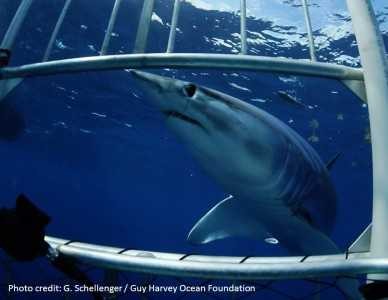NSU Newsroom
SharkBytes
Horizons
This version of NSU News has been archived as of February 28, 2019. To search through archived articles, visit nova.edu/search. To access the new version of NSU News, visit news.nova.edu.
This version of SharkBytes has been archived as of February 28, 2019. To search through archived articles, visit nova.edu/search. To access the new version of SharkBytes, visit sharkbytes.nova.edu.
Can The Ocean’s Fastest Shark Outswim Our Appetite for It
 According to National Geographic, Shortfin makos are the fastest sharks in the ocean, capable of reaching 35 miles an hour as they chase down speedy prey such as bluefish and tuna. Makos have a herculean reputation among fishermen, who love them for their fight and their meat in equal measure.
According to National Geographic, Shortfin makos are the fastest sharks in the ocean, capable of reaching 35 miles an hour as they chase down speedy prey such as bluefish and tuna. Makos have a herculean reputation among fishermen, who love them for their fight and their meat in equal measure.
Scientists from NSU’s Guy Harvey Research Institute have been tagging and tracking makos in the Atlantic Ocean and Gulf of Mexico since 2008, with the primary objective of studying the sharks’ movement patterns. Mahmood S. Shivji, Ph.D., Director of Guy Harvey Research Institute and Save Our Seas Shark Research Center said to National Geographic that the tagged animals are running into fishing hooks to the tune of 25 percent and no shark fishery can sustain a 25 percent removal every year.
CLICK HERE to read the full article by National Geographic.
